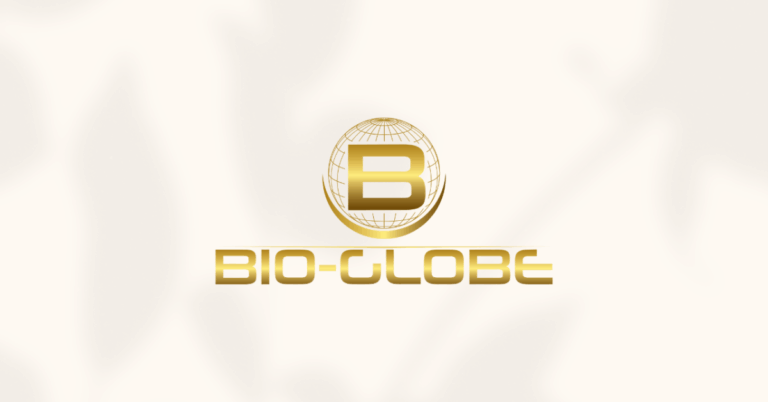EdTech CRM: Revolutionizing Educational Technology Businesses
In the ever-evolving world of education, technology has played a transformative role. EdTech companies are at the forefront of this change, offering innovative solutions to enhance learning experiences across the globe. However, delivering a seamless, scalable, and personalized experience to learners, institutions, and educators requires more than just powerful content — it demands intelligent customer management. This is where an EdTech CRM comes into play.
An EdTech CRM (Customer Relationship Management) system is specifically designed to meet the unique needs of educational technology providers. It helps streamline communication, optimize lead management, and provide in-depth insights into user behavior, ultimately supporting growth and retention strategies.
What is an EdTech CRM?
An EdTech CRM is a software solution tailored for educational technology companies to manage relationships with their customers, whether they are individual learners, schools, or enterprise clients. It helps organize interactions across sales, marketing, support, and product teams while providing visibility into user behavior and lifecycle stages.
Unlike traditional CRMs, which cater to general business needs, an EdTech CRM is built to address the complexities of the education industry, such as lead nurturing for students, tracking course engagement, upselling to schools, and managing institutional partnerships.
Why EdTech Companies Need CRM
Managing High Volumes of Leads
EdTech platforms often generate thousands of leads through webinars, landing pages, paid ads, and partnerships. A CRM helps manage these leads effectively, assign them to the right salespeople, and ensure timely follow-ups.
Personalized User Engagement
Every learner or institution has unique needs. CRM software allows EdTech companies to segment audiences and tailor communication across channels like email, SMS, and in-app messaging.
Centralized Data for Smarter Decisions
By storing all interactions, transactions, and engagement history in one place, CRMs enable data-driven decision-making that leads to better conversion and retention.
Automation to Scale Operations
Manual workflows limit scalability. A CRM automates tasks like lead scoring, onboarding emails, reminders, and customer support ticketing, freeing teams to focus on strategic growth.
Key Features of a Powerful EdTech CRM
1. Lead Capture and Tracking
Automatically capture leads from websites, ads, third-party platforms, and webinars. Monitor their activity and behavior to score them for conversion readiness.
2. Sales Pipeline Management
Track every opportunity from inquiry to enrollment or subscription. Visualize sales stages and forecast revenue based on pipeline progress.
3. Multi-Channel Communication
Engage users through emails, SMS, push notifications, and voice calls — all managed through one centralized system.
4. Marketing Automation
Set up intelligent workflows to send nurturing emails, trial reminders, product updates, and promotional offers based on user actions or timing.
5. Customer Support Integration
Integrate customer support systems to manage queries, escalate tickets, and track resolution times directly from the CRM.
6. Course Engagement Insights
Track how learners interact with the platform — course completion rates, login frequency, content consumption — and use that data to trigger re-engagement campaigns.
7. Reporting and Analytics
Gain insights into conversion rates, campaign ROI, sales performance, user behavior trends, and churn predictions through easy-to-read dashboards.
8. B2B Account Management
For EdTech companies selling to institutions or enterprises, the CRM can manage contracts, stakeholders, renewal cycles, and upsell opportunities.
Benefits of Using a CRM in EdTech
Increased Lead Conversion
Automated follow-ups, behavioral insights, and targeted messaging significantly improve conversion rates from free trials or inquiries to paying customers.
Enhanced User Experience
Learners and institutions receive personalized attention, relevant content, and timely support — all of which improve satisfaction and retention.
Sales and Marketing Alignment
Marketing can generate qualified leads, and sales can convert them with better context — all within the same platform.
Improved Retention and Upsell
Track user engagement and trigger timely actions to prevent drop-offs, offer renewals, or suggest premium upgrades.
Scalable Operations
From small startups to enterprise EdTech providers, a CRM allows for consistent processes that scale with growth.
Who Should Use an EdTech CRM?
An EdTech CRM is ideal for:
-
Online course platforms and MOOCs
-
Test preparation and tutoring apps
-
K–12 learning solution providers
-
Higher education content providers
-
Language learning platforms
-
Learning management system (LMS) vendors
-
Educational software companies targeting schools, colleges, or corporate clients
Whether your focus is B2C or B2B, an EdTech CRM supports every stage of the buyer and learner journey.
How to Choose the Right EdTech CRM
1. Education-Specific Features
Ensure the CRM supports learning workflows — including student onboarding, trial management, and institutional sales processes.
2. Integration Capabilities
The CRM should integrate easily with LMS platforms, email tools, payment gateways, webinar software, and customer support systems.
3. Customizability
Your CRM should be flexible enough to adapt to your brand’s workflows, sales cycle, and reporting needs.
4. Automation Tools
Look for automation features that reduce manual effort and streamline lead management, follow-ups, and engagement campaigns.
5. Real-Time Reporting
Access real-time dashboards to monitor lead activity, campaign performance, and user behavior, enabling quick pivots in strategy.
6. Reliable Support
Select a vendor that provides onboarding assistance, regular updates, and ongoing technical support.
Use Cases of EdTech CRM in Action
Scenario 1: Managing Free Trials to Paid Conversions
An EdTech company offers a 7-day free trial. The CRM tracks how the user engages with the platform, sends automated reminders to upgrade, and notifies the sales team if the trial user shows strong buying signals.
Scenario 2: B2B Institutional Sales
The CRM allows account managers to manage multiple stakeholders within a school, track contract terms, renewal dates, and communication logs for effective relationship management.
Scenario 3: Student Re-Engagement
If a student hasn’t logged in for several days, the CRM triggers a motivational email, or assigns a call-back task to the support team to re-engage them.
FAQs about EdTech CRM
What is an EdTech CRM?
An EdTech CRM is a customer relationship management platform built for educational technology companies. It helps manage leads, nurture learners, automate communication, and improve overall business performance.
How is an EdTech CRM different from a regular CRM?
While regular CRMs cater to general sales workflows, an EdTech CRM includes features specific to the education industry, like course engagement tracking, student lifecycle management, and institution-based sales tracking.
Who uses EdTech CRMs?
Sales and marketing teams, customer support staff, product teams, and even educators within EdTech companies use CRM tools to enhance learner relationships and drive business outcomes.
Can EdTech CRMs help in reducing churn?
Yes, by tracking student engagement, sending timely reminders, and automating re-engagement campaigns, EdTech CRMs help reduce churn and improve retention.
Are EdTech CRMs suitable for startups?
Absolutely. Many EdTech CRM providers offer flexible pricing and modular solutions, making them ideal for startups that want to grow and scale effectively.
Do I need technical skills to use an EdTech CRM?
Most modern CRMs are user-friendly and require minimal technical skills. They usually come with onboarding support and intuitive interfaces for non-technical users.
Conclusion
In the fast-paced and competitive world of educational technology, staying ahead means more than offering a great product. It’s about building lasting relationships, understanding learner behavior, and streamlining operations across departments.
An EdTech CRM empowers your team with the tools they need to nurture leads, drive engagement, and deliver personalized learning experiences at scale. Whether you’re targeting individual learners or enterprise clients, a tailored CRM system is key to sustaining growth, improving retention, and creating a seamless journey from first click to course completion.







